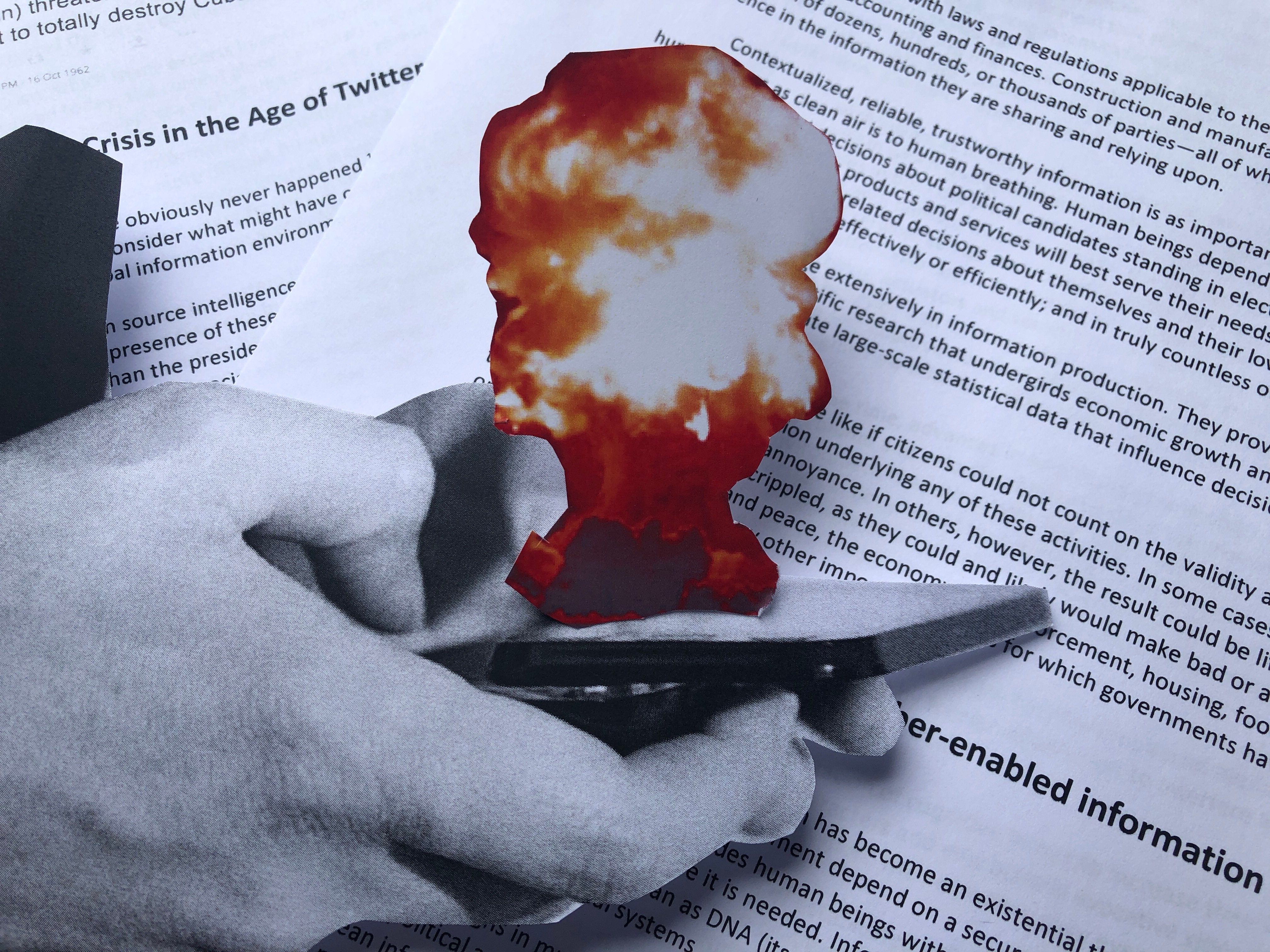July 11, 2019
In this month's Bulletin of Atomic Scientists, the folks who created the famous "Doomsday Clock" to remind us of the continued risk of nuclear war, cyber expert Herbert Lin makes a startling claim: False information threatens the future of humanity.
In brief, Mr. Lin argues that "corruption of the information system" amplifies the existential threats posed by nuclear weapons and climate change, but he insists that "Cyber-enabled information warfare has also become an existential threat in its own right."
Lin warns of a "global information dystopia, in which the pillars of modern democratic self-government—logic, truth, and reality—are shattered, and anti-Enlightenment values undermine civilization around the world."
What is "corruption of the information system" and "cyber-enabled information warfare?" In the twenty-first century, information flows are the lifeblood of society. But Lin warns that social media are increasingly used to inject false or misleading information into that bloodstream. This new kind of propaganda is in some ways more insidious and harder to detect than traditional propaganda, which is issued via public, and often centralized, media channels.
If large numbers of people regularly consume false information, Lin says, they will lose confidence in the institutions that govern society and the vital information they provide.
What's more, targeted disinformation can make wars more likely; imagine the impact of Facebook and Twitter during the Cuban Missile Crisis. They can also trigger national and international health crises by undermining public confidence in prevention and treatment methods. They can exacerbate the effects of climate change by portraying it as a hoax.
The dark side of information freedom: Not so long ago, we celebrated a new age of global connectivity, fingertip information searches, self-publishing, seemingly infinite sources of information, and the advent of pocket-sized devices with more brainpower than the supercomputers of a generation ago.
But as the report warns, these "increases in the volume and velocity of information have created a louder and more chaotic information environment that stimulates fast, angry, reflexive, intuitive, and visceral thinking, reaction, and action in people and thus displaces more complex, reflective, and rational thought."
We've already seen:
• Ubiquitous use of search engines that return results based mainly on the popularity of the answers rather than their accuracy.
• The "formation of echo chambers and media bubbles that reinforce pre-existing beliefs."
• Large-scale data mining that allows digital-age propagandists to sift vast amounts of personal data to identify and target those most susceptible to specific kinds of "fake news."
• Lightning-fast data transfers, which enable false information to spread more quickly.
• Computer-generated voices and manipulated images that are almost indistinguishable from real ones.
The solution? According to Lin, we need "better ways of identifying adversary cyber-enabled information warfare campaigns in progress; good countermeasures to help human beings resist the use of cyber-enabled information warfare operations targeted against them; and good measures to degrade, disrupt, or expose the adversary's use of cyber-enabled information warfare operations."
The complication: Human beings are not always truth-seekers. As this report acknowledges, all of us are guilty at times of believing what we want to believe, creating demand for false information to meet the supply.
Teaching people to recognize fake news is important. Persuading them that they should try to separate fact from fiction is a different challenge.More For You
- YouTube
Europe can no longer rely on the US and must step up to defend its own future, Ian Bremmer reports from the Munich Security Conference.
Most Popular
Think you know what's going on around the world? Here's your chance to prove it.
A poster featuring Andrew Mountbatten-Windsor, formerly known as Prince Andrew, is installed on a sign leading to the parking area of the Sandringham Estate in Wolferton, as pressure builds on him to give evidence after the U.S. Justice Department released more records tied to the late financier and convicted sex offender Jeffrey Epstein, in Norfolk, Britain, February 5, 2026.
REUTERS/Isabel Infantes
British police arrested former Prince Andrew Mountbatten-Windsor today over allegations that in 2010, when he was a UK trade envoy, he shared confidential government documents with convicted sex offender Jeffrey Epstein.
© 2025 GZERO Media. All Rights Reserved | A Eurasia Group media company.
